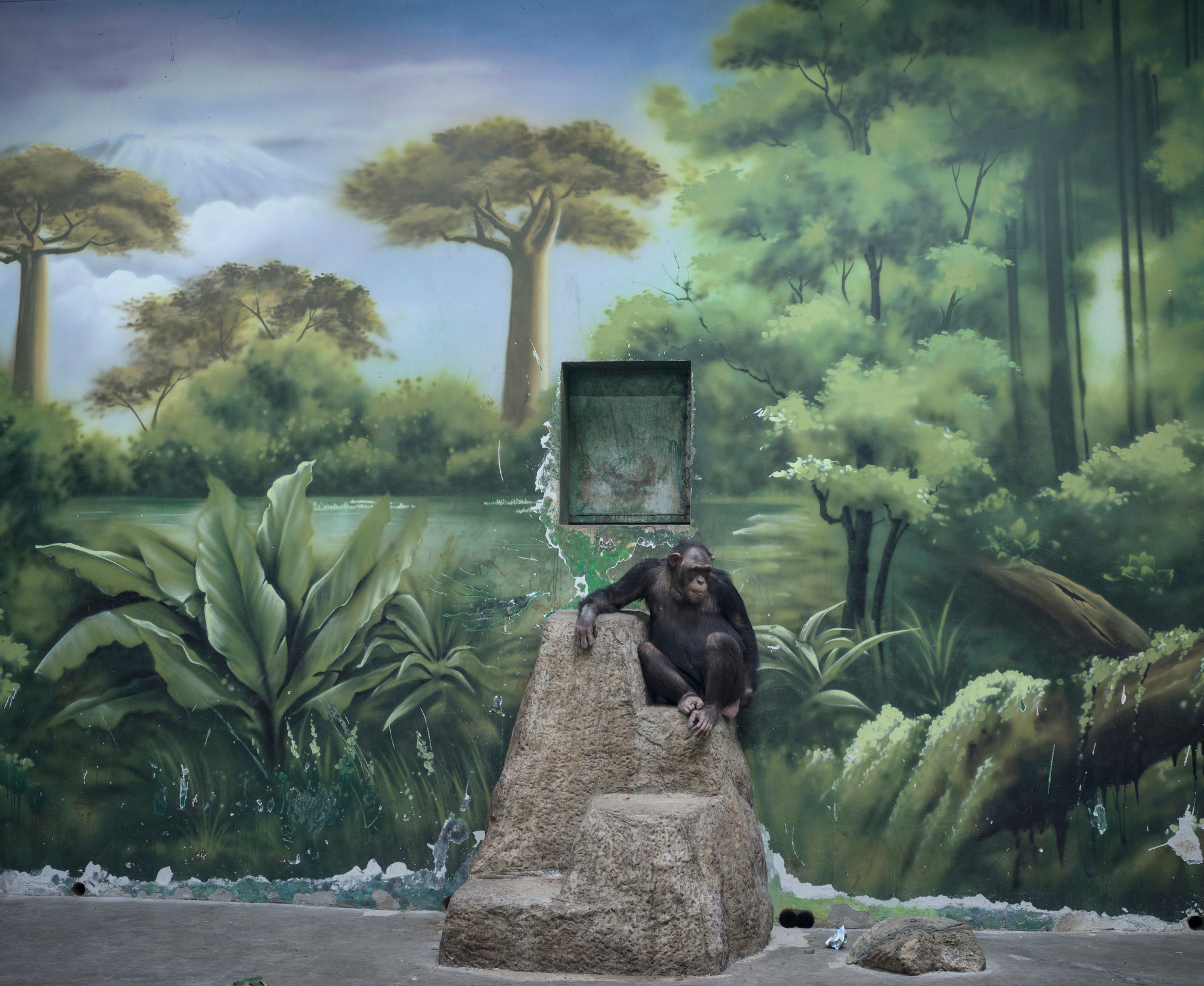The best camera desk mounts: arms to fix your camera to a table or desktop
The best desk mount camera arms are ideal for content creators, presenting to camera across a tabletop. And they’re useful for many other applications as well.
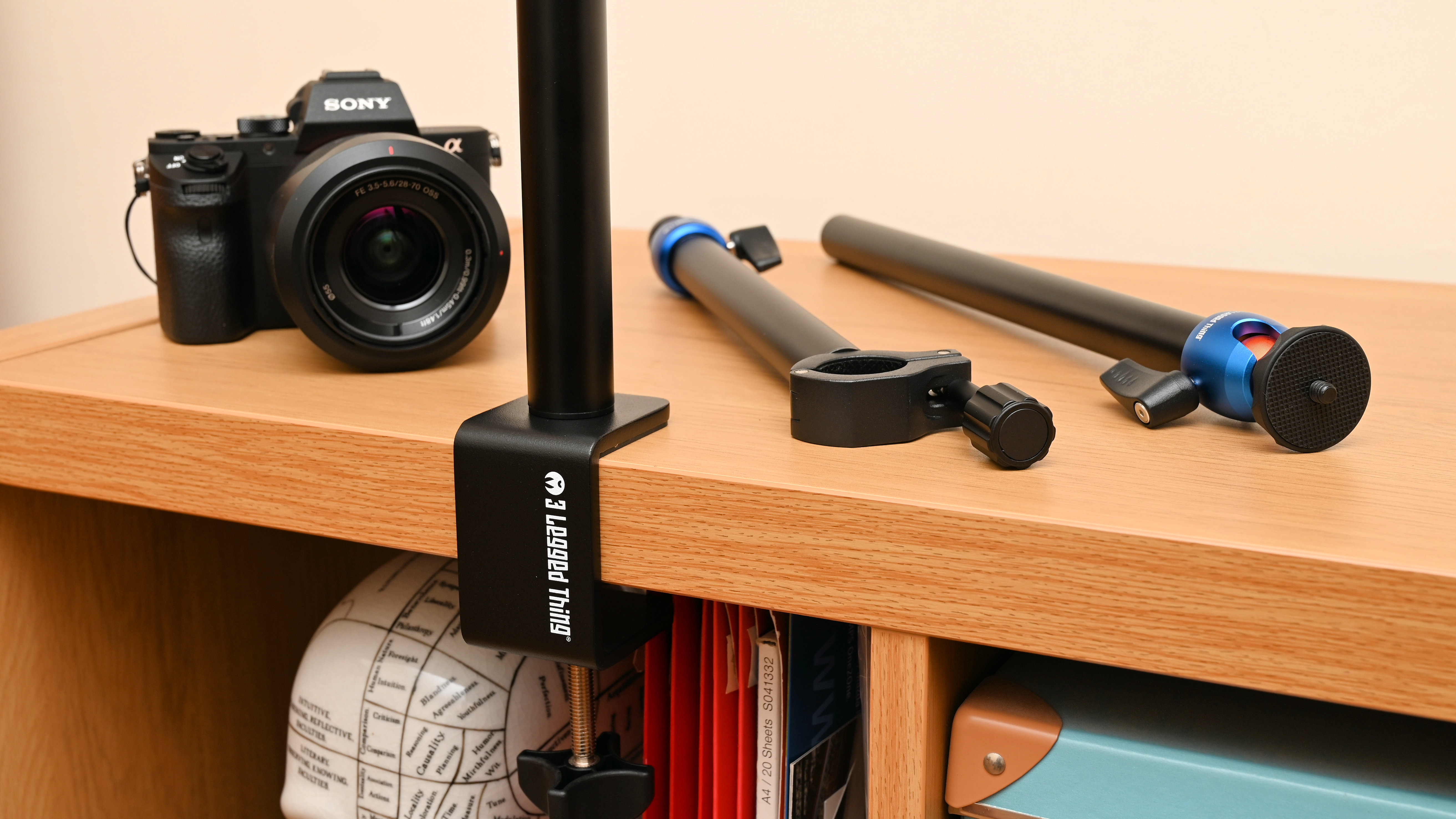
A tripod is the most obvious support for a camera but when I’m creating content, sat at a desk or table and speaking to camera, a tripod often isn’t ideal. My main problem is that my desk is placed against the wall of my home office/studio and there’s simply no room at the back of it to set up a tripod. One solution is to use one of the best tabletop tripods but, even then, desk space can be limited. If you’ve got more room to play with, for example you’re using a dining table with space all around it, you might consider using one of the best budget tripods. For me though, a dedicated camera desk mount is the most ideal option.
So what exactly is a camera desk mount? In its simplest form, it’s a pole with a tabletop clamp at the bottom and a mini ball head at the top. All you need to do is to attach it to the desk or table, fix your camera to the ball head and you’re sorted. Even the most straightforward examples of the breed tend to have extending poles, so that you can adjust the height of the camera as necessary.
More sophisticated camera desk mount arm systems typically feature an extending center pole, while adding one or two auxiliary arms. That can be really useful if you want to mount not only a camera, but also the likes of an LED light, microphone or other accessory. In most cases, one or both auxiliary arms have their own mini-ball heads. That enables a full range of movement, when you attach the first arm to the center pole and the second pole to the other end of the first. Even so, there are variations on the theme. In this guide, I’ll be covering the best camera desk mounts that I’ve tested and reviewed.
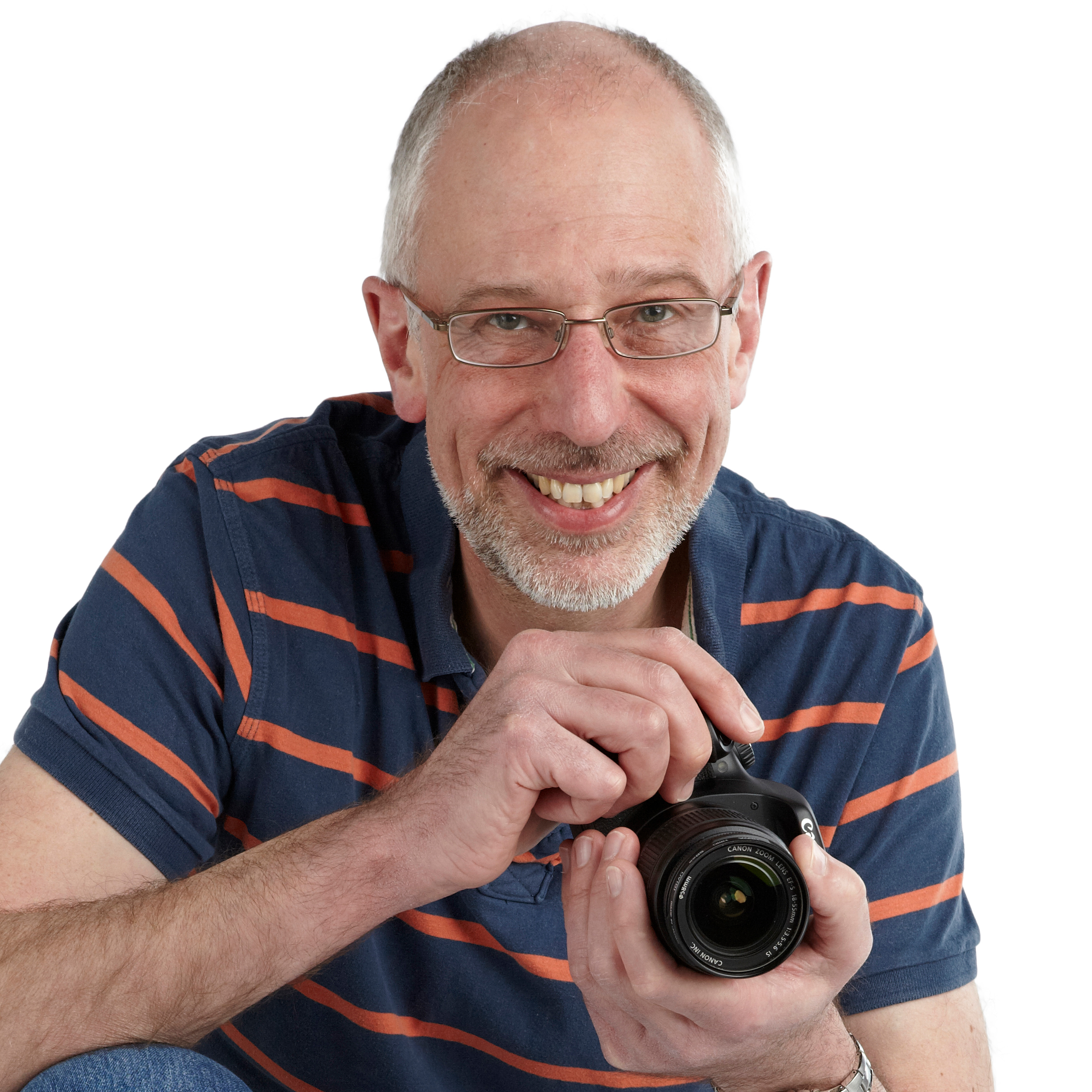
Matthew Richards is a photographer and journalist who has spent years using and reviewing all manner of photo gear. He is Digital Camera World's principal printer reviewer – and has tested all the printers on this list. His expertise with equipment doesn’t end there, though. He is also an encyclopedia when it comes to all manner of cameras, camera holsters and bags, flashguns, tripods and heads, printers, papers, and inks, and just about anything imaging-related.
The Quick List
Here's a quick rundown of all the camera desk mounts in this guide. Scroll down for a more in-depth look at the individual products.
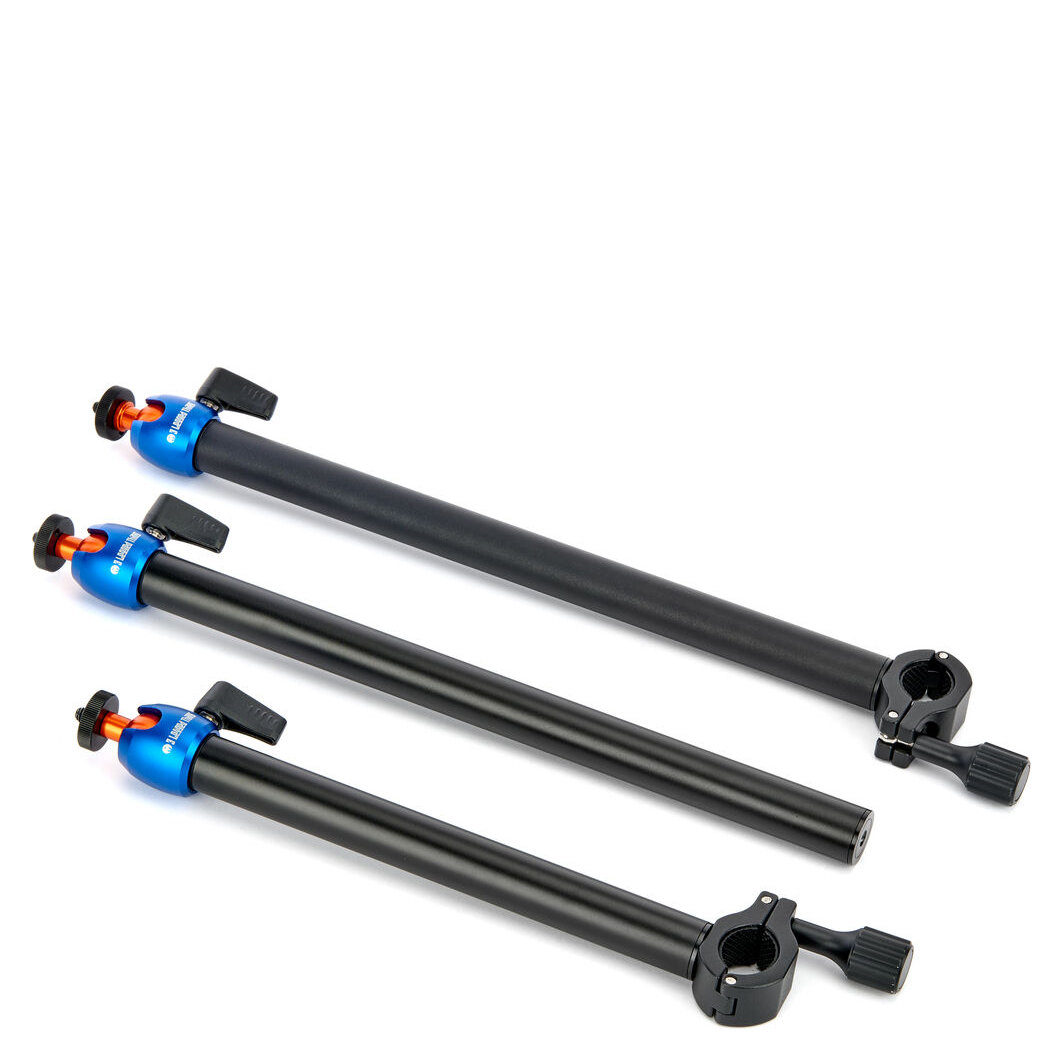
I love the premium quality and luxurious finish of this 3 Legged Thing kit. It includes a center pole and two auxiliary arms but if that’s overkill for your needs, you can buy the center pole on its own or a kit with just one auxiliary arm.
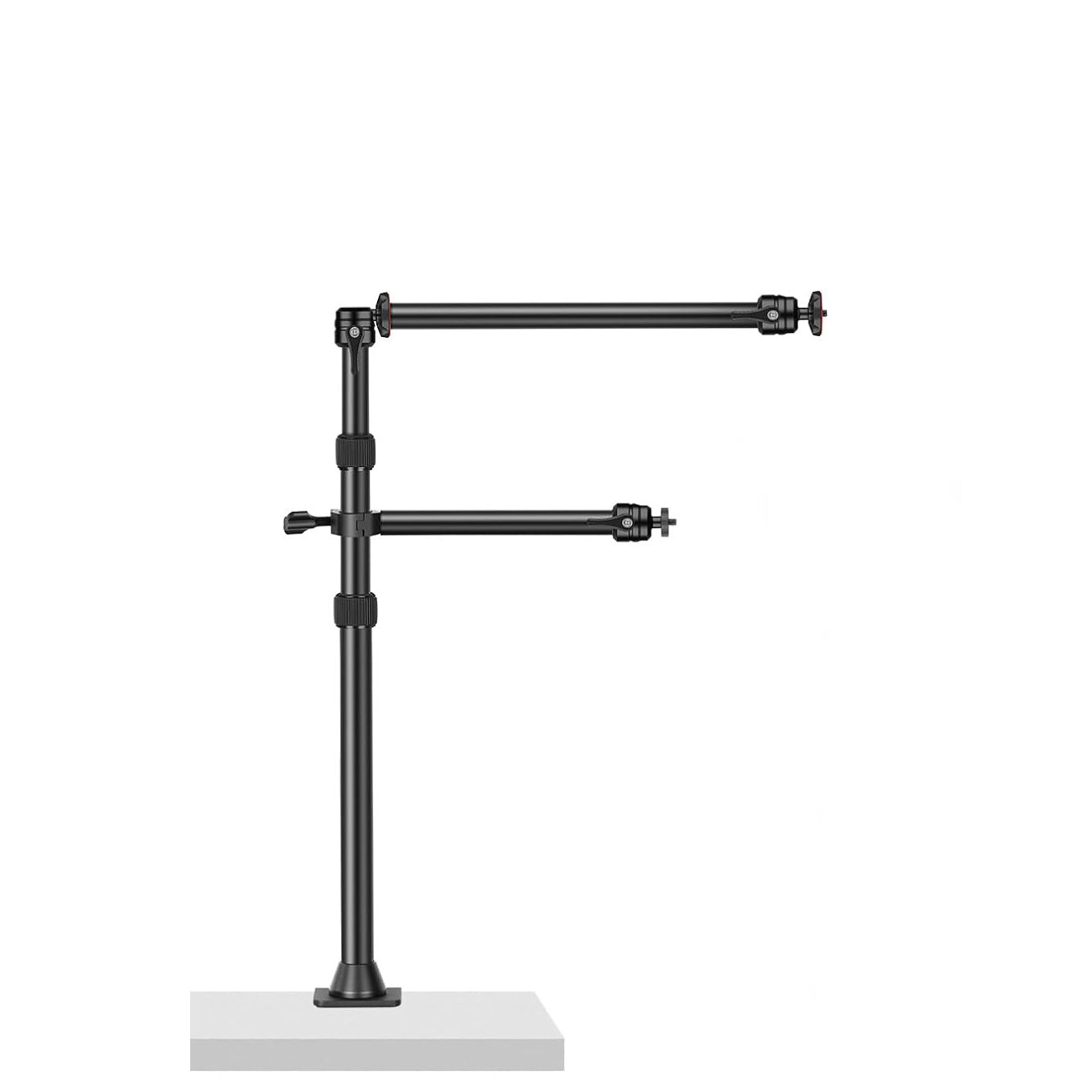
This is another kit that includes two auxiliary arms, enabling great versatility and options for mounting a camera as well as an LED lamp or other accessory. It fits particularly well with chunky desktops, up to 90mm / 3.5" thick.
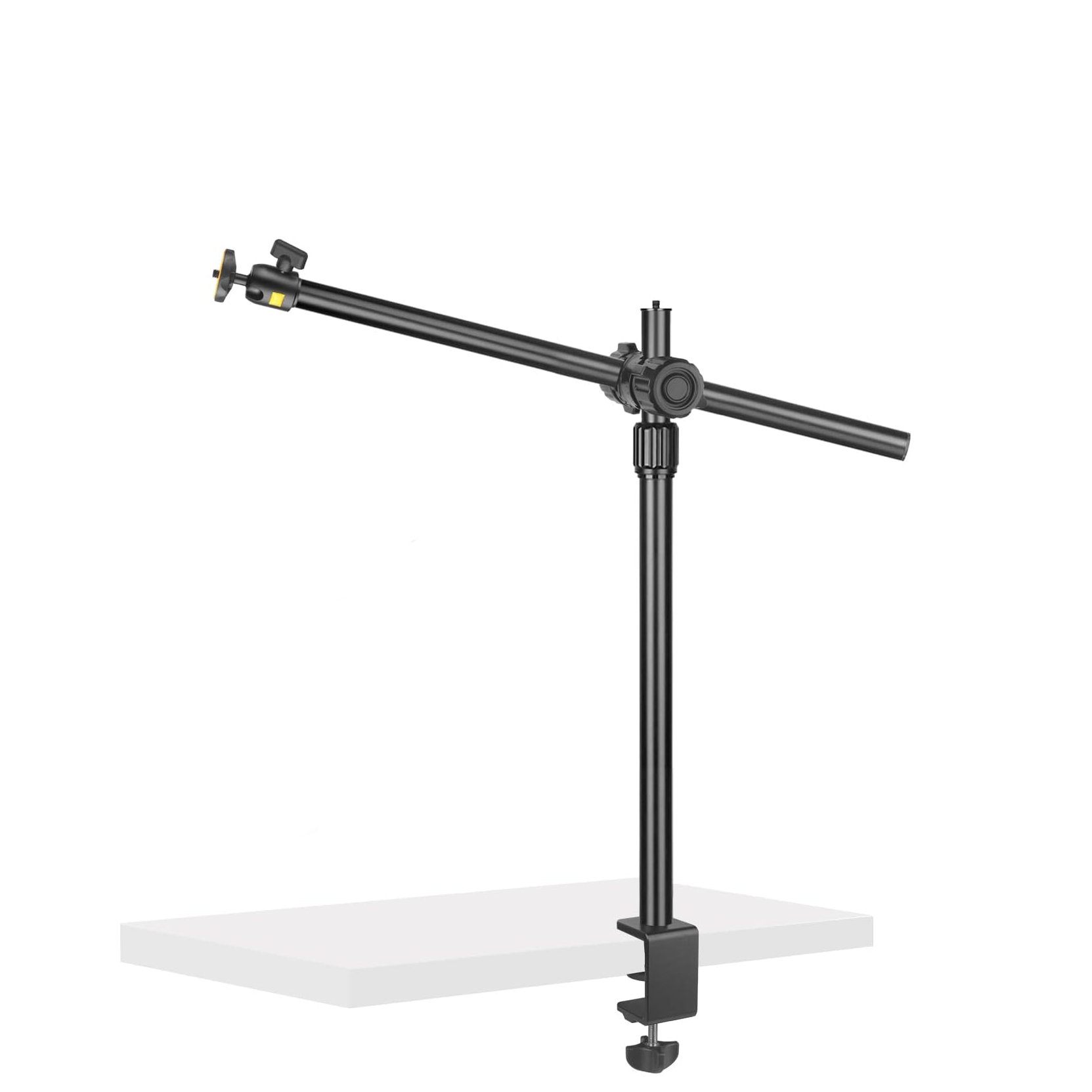
Camera desk mount supports don’t come much cheaper than this. But despite its bargain basement selling price, the kit includes an auxiliary arm and a phone bracket that I like for mounting a phone instead of a camera.
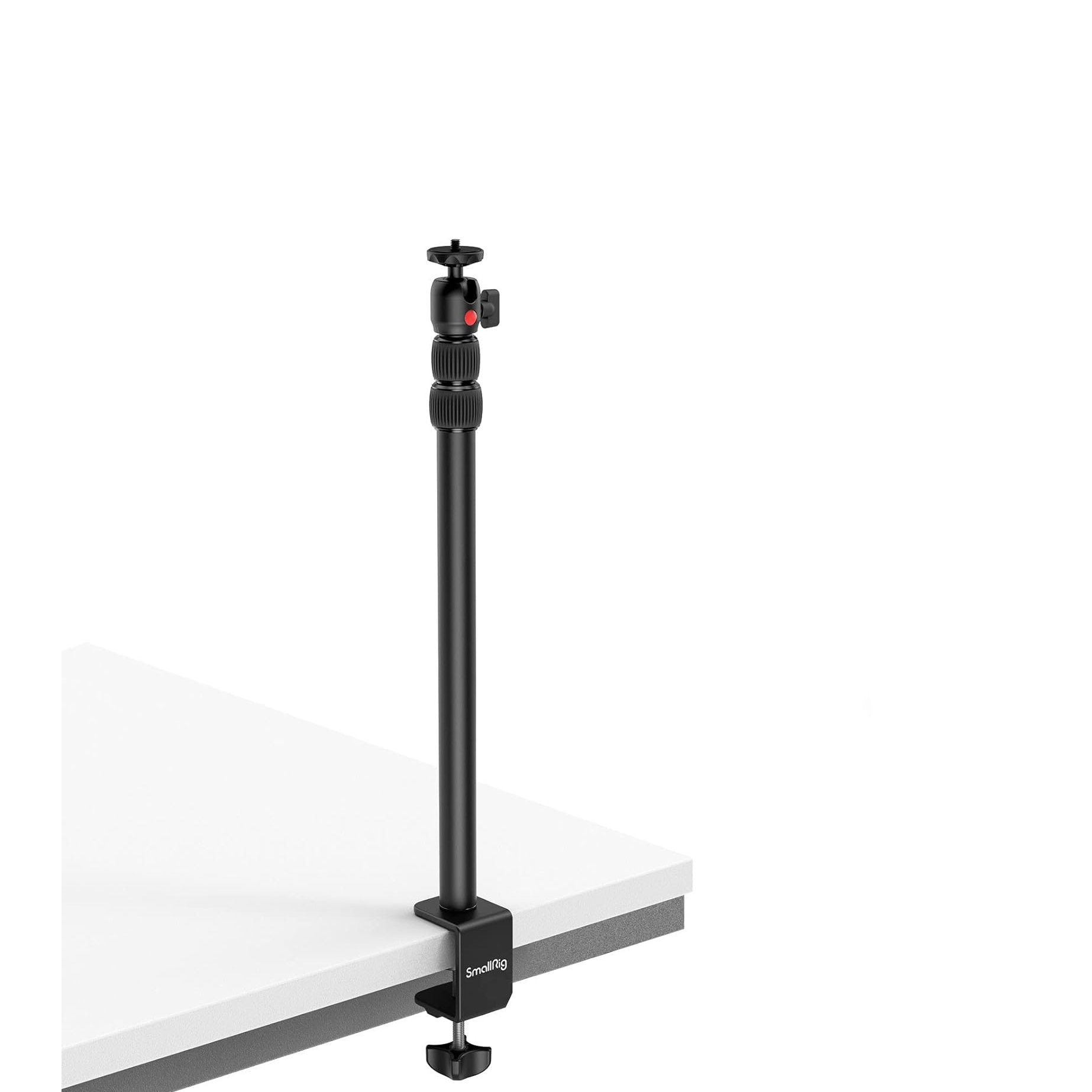
I like that this SmallRig option is so quick and easy to use. I can set it up in double-quick time but the flipside is that it has no auxiliary arms. It’s therefore ideal for mounting a camera or light, but not both, and it has a hefty payload rating.
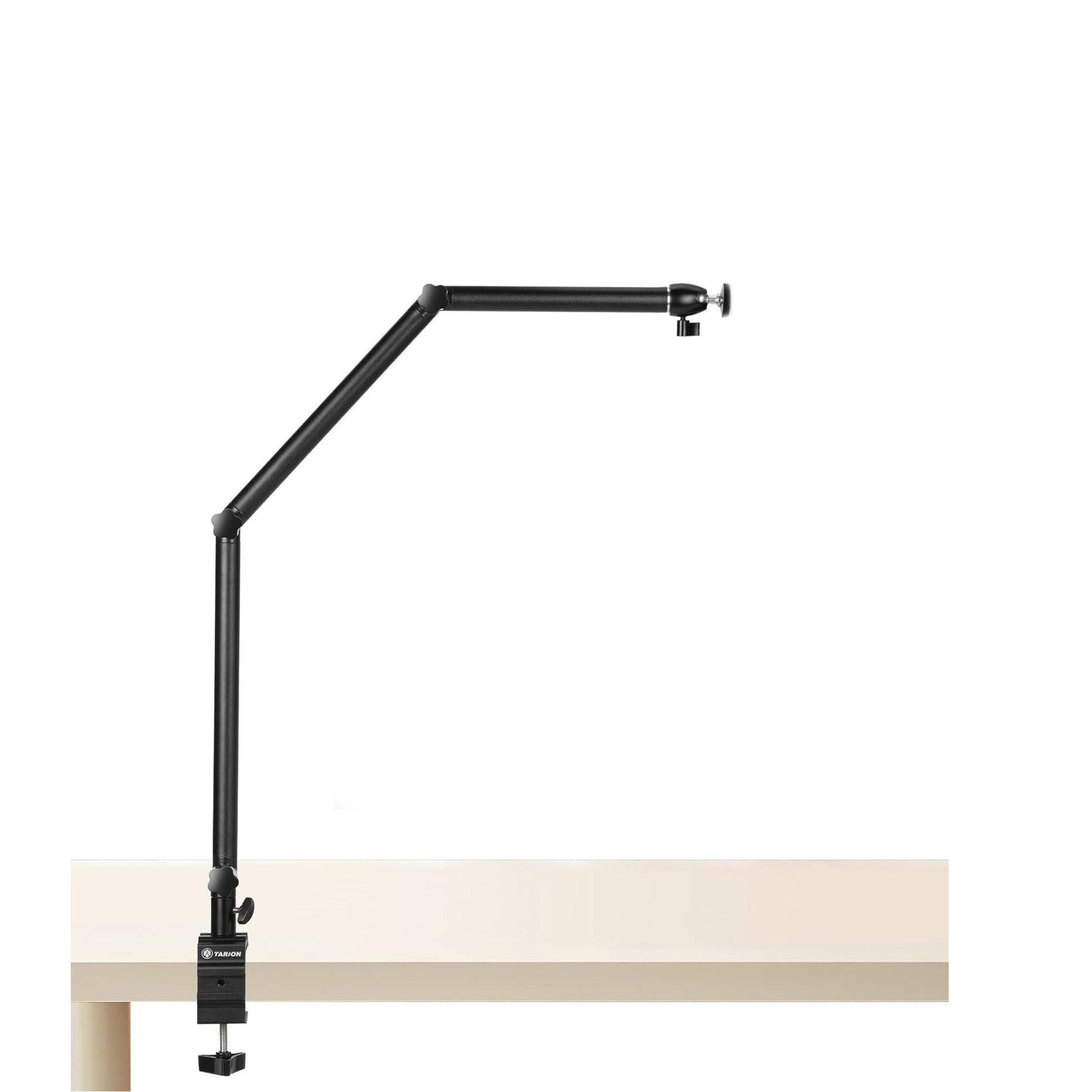
Bucking the trend of most camera desk mounts, this one has three separate poles, which connect to each other via rotating brackets. I find it’s useful if I want to adjust the lateral position of the camera as well as its height but setup time is a bit longer.
The best camera desk mounts we recommend
Why you can trust Digital Camera World
Best overall
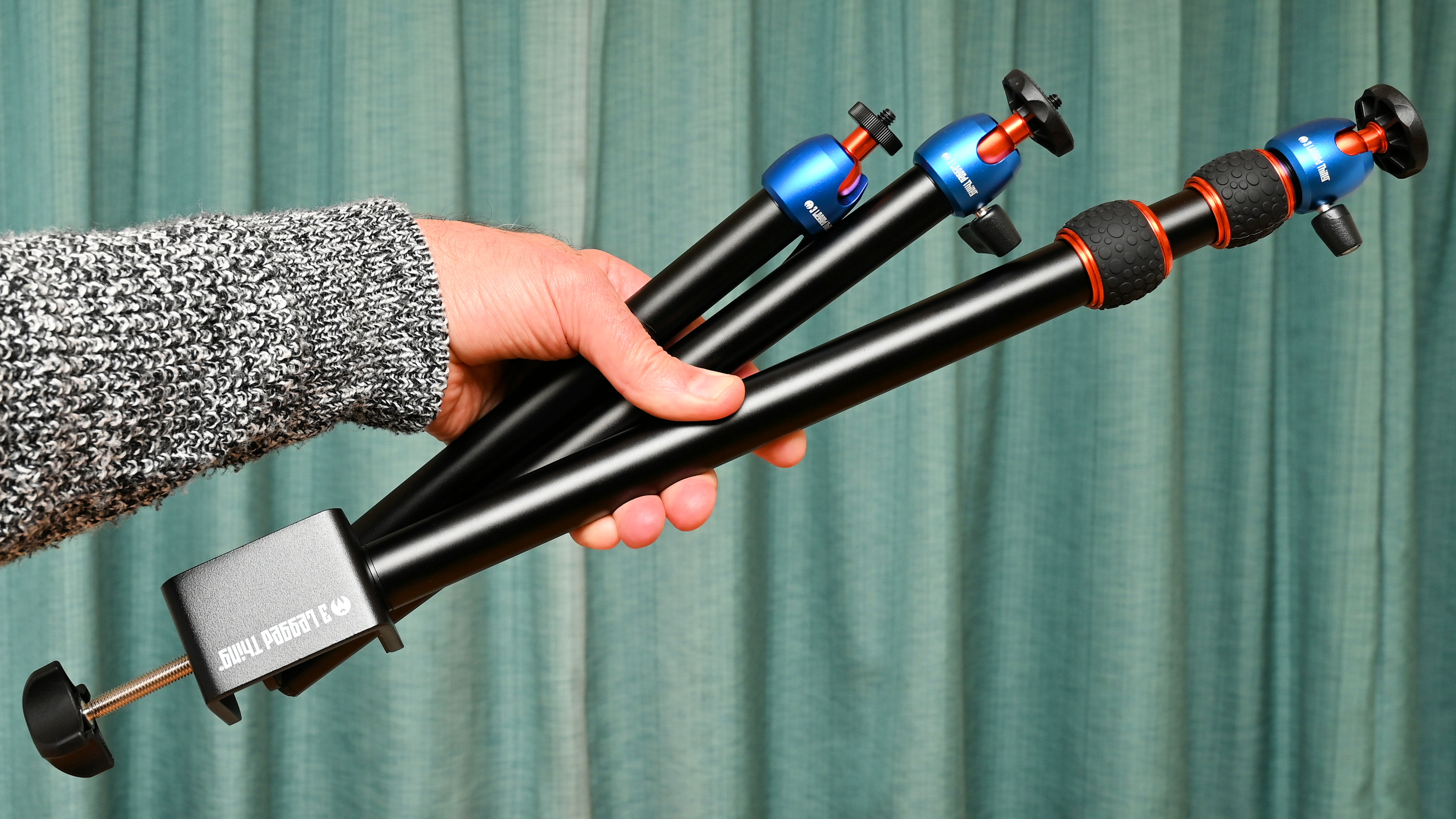
Specifications
Reasons to buy
Reasons to avoid
✅ You want a tabletop mount for your camera, mobile phone and accessories that offers excellent performance and versatility.
✅ You like the flexibility of a range of kits, that are tailor-made to offer exactly the right fit for your needs.
❌ You’d rather use a conventional tripod that offers more room for maneuver, if you actually have room for maneuver around your table or desk.
❌ You tend to work at a very large desk or table and have room to use a tabletop tripod, although these are comparatively short.
I’ve always been impressed by the quality of 3 Legged Thing tripods and accessories, and the CDMS follows suit. The upright extending pole and arms are engineered from aerospace-grade magnesium alloy. It’s a great choice as the material is very sturdy yet fairly lightweight, and less expensive to manufacture than carbon fiber. The only limiting factor in the load bearing ability is the ball heads, equating a maximum payload of 1kg / 2.2lb, for both the center pole and auxiliary arms.
There’s a range of kits available, starting with the CDMS-V kit that comprises just the center pole with table clamp and ball head retails for $35/£27. Next up is the CDMS-1A kit, which includes the same pole plus a single arm, for $50/£39. The range-topping CDMS-2A kit with center pole and dual arms costs $60/£47. The single and dual auxiliary arms are also available to buy separately at $23/£18 and $30/£23 respectively.
I went for the CDMS-2A kit, as I feel the dual auxiliary arms enable much greater versatility for positional adjustments as well as for mounting both a camera and an LED lamp or other accessories. Performance is excellent in all respects.
Read more: 3 Legged Thing CDMS-2A review
| Features | All of the kits are feature-rich but the range-topper rules the roost. | ★★★★★ |
| Design | Compact and lightweight but highly versatile and easy to use, it’s a very clever design. | ★★★★★ |
| Performance | So long as you have a sturdy desk or table to mount them on, the kits are great performers. | ★★★★★ |
| Value | You can buy cheaper desk mounts but the top-ranking build quality and finish make these a bargain. | ★★★★★ |
Best heavy-duty
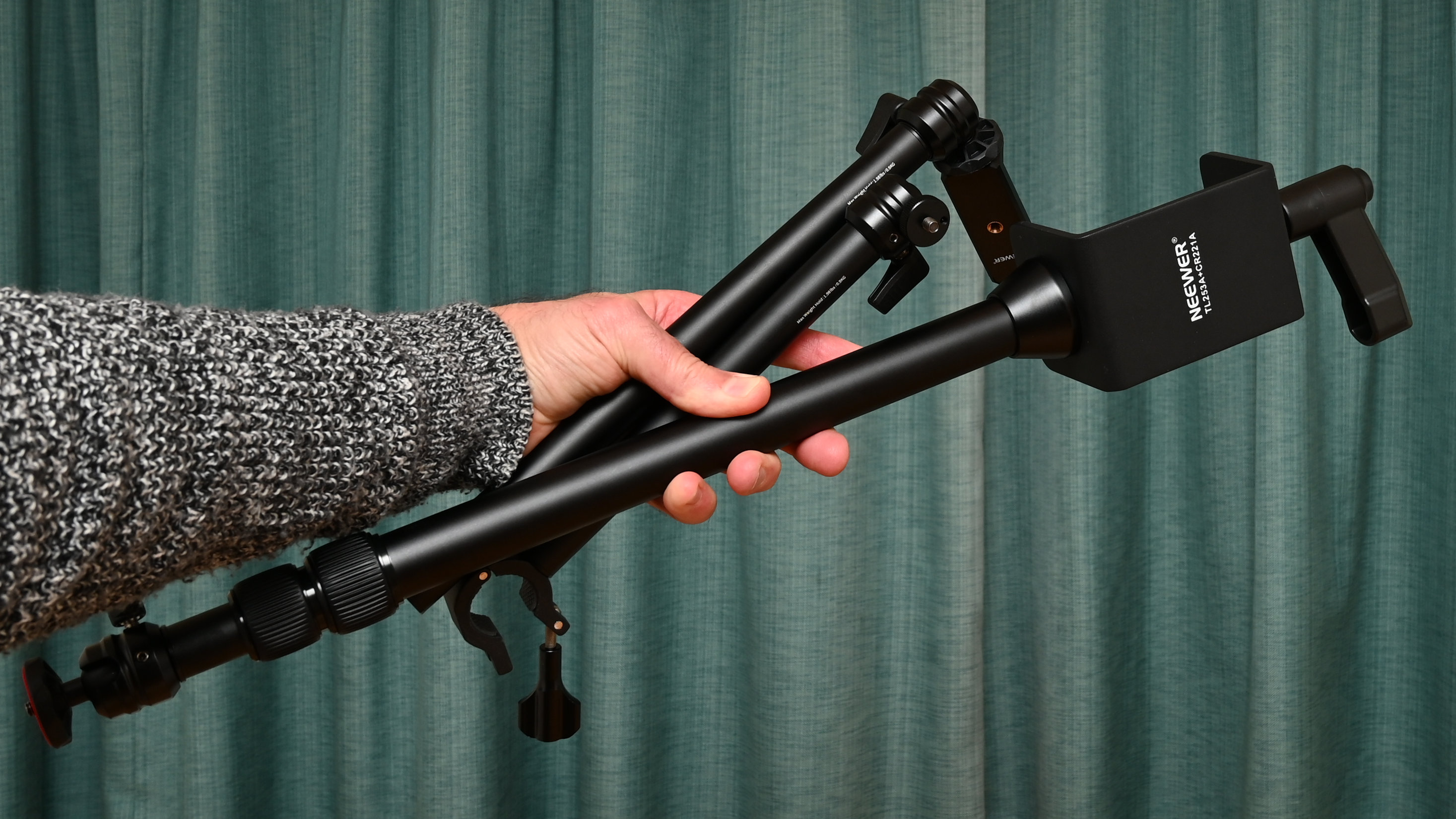
Specifications
Reasons to buy
Reasons to avoid
✅ You need a camera desk mount that will fit to particularly thick tabletops, up to 90mm / 3.5" in size.
✅ You want to be able to add an LED lamp or other accessories using one or two auxiliary arms.
❌ You want to be able mount a heavy camera on one of the auxiliary arms instead of on the center pole.
❌ You’d rather have a more lightweight camera desk mount that’s easier to slip into a bag and carry around.
Chunky from the base up, this Neewer has an oversized desktop clamp. Most desk mounts that I’ve used can accommodate a tabletop thickness of up to about 50mm / 2", but this one goes all the way up to 90mm / 3.5". That can certainly come in handy if you’ve got heavyweight furniture. Moving on up, the 3-section extending center pole also has unusually wide diameters of 28 / 25 / 22mm for each section of tubing. That all equates to a hefty maximum payload rating of 4kg / 8.8lb.
I find that the Neewer can take the weight of pretty much any camera I want to use it for, at least if it’s mounted on the center pole. However, if you want to mount the camera on one of the auxiliary arms, for example to add height or to shoot directly downwards at something on the table, the maximum load rating drops to just 0.9kg / 1lb. That’s a big drop in payload rating but really it’s only to be expected.
There’s a good range of height adjustment for the center pole, which extends from 44-103cm / 17.3-40.6" in operating height above the tabletop. The auxiliary arms have a length of 28cm / 11" for the one that attaches to the center pole, and 35cm / 13.8" for the second, so that gives plenty of scope for positional adjustments. Equally important as far as I’m concerned, all the adjustments are pretty quick and easy to make.
Read more: Neewer Camera Desk Mount review
| Features | For a versatile camera desk mount, this kit has pretty much every feature you could need. | ★★★★★ |
| Design | The design makes the Neewer easy to use but the aux arms have a relatively low payload | ★★★★☆ |
| Performance | The performance is outstanding for the center pole but more average for the auxiliary arms. | ★★★★☆ |
| Value | It’s very good value for such a versatile kit with so many components. | ★★★★☆ |
Best value
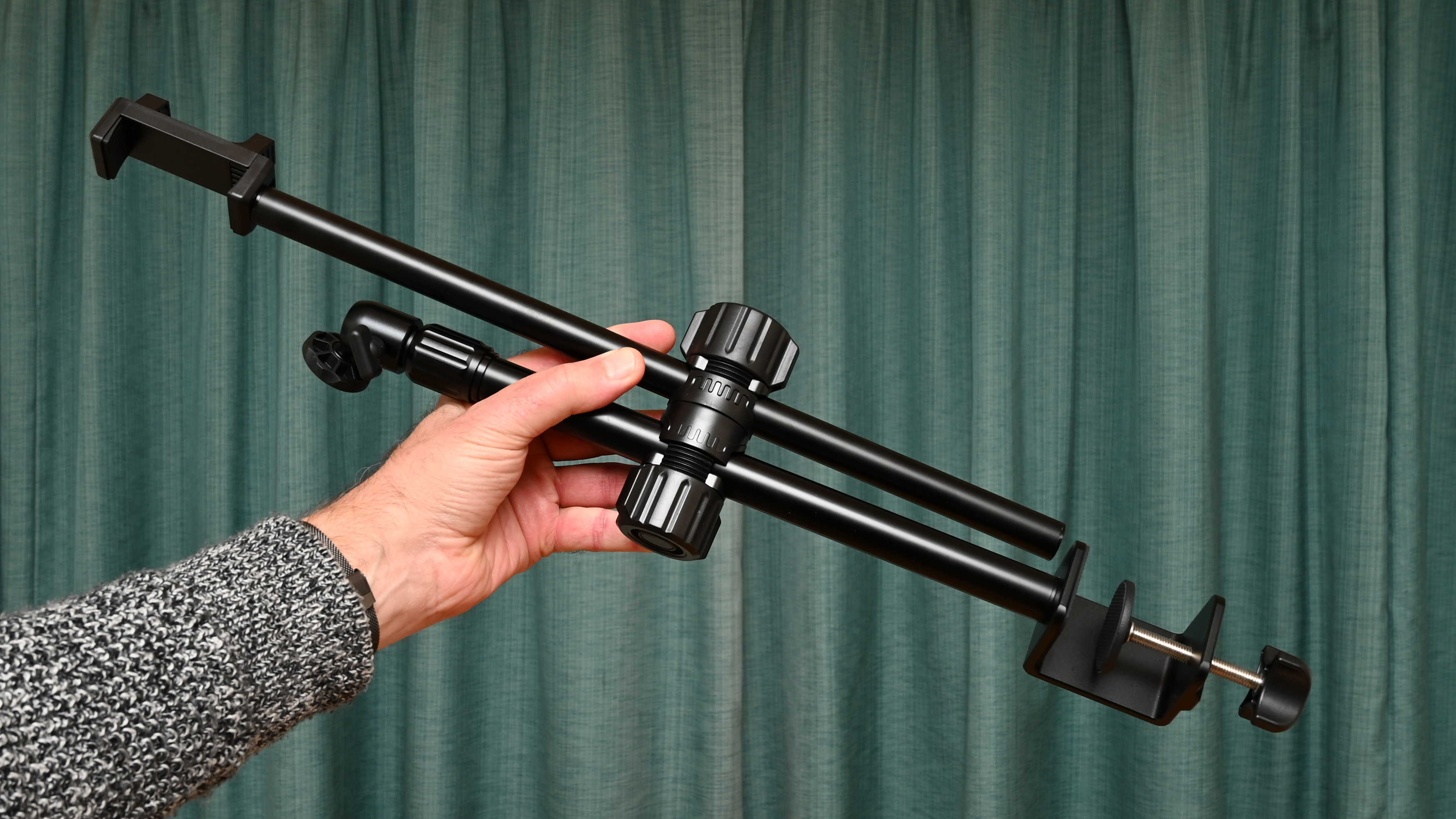
Specifications
Reasons to buy
Reasons to avoid
✅ You want a desk mount stand with a decent load rating that’s really cheap to buy.
✅ You feel the need for an auxiliary arm for adding height or mounting an accessory.
❌ You’d prefer a stand with two ball heads, one for the main center pole and one on the auxiliary arm.
❌ You’re put off by the fiddly, plastic clamp for attaching the auxiliary arm to the center pole.
I’m mostly impressed with this Jebutu desk mount, especially as it’s so cheap to buy. My first impression was that it’s very lightweight but that’s no bad thing if you want to carry it around, and it has a decent load rating of 2kg / 4.4lb. The extending center pole feels solid and robust and, more surprisingly considering how inexpensive the kit is to buy, there’s also an included auxiliary arm.
You can use the auxiliary arm to boost the height of the center pole from its regular range of 38-63cm / 15-24.8", adding a further 41cm / 16". Alternatively, you can use the supplied clamp that joins the auxiliary pole to the center pole. This can often be preferable, so that you can add an LED lamp or other accessory as well as your camera.
My only niggles with this kit are that the auxiliary arm clamp is very plasticky and fiddly to attach, and that there’s only one mini ball head supplied. I’d rather have seen two ball heads included, as this makes it much easier to take full advantage of the auxiliary arm.
Read more: Jebutu Camera Arm Desk Mount review
| Features | The additional arm is worth having but it’s a shame it doesn’t have a second ball head. | ★★★★☆ |
| Design | The design is mostly good but the clamp for the auxiliary arm is more fiddly than usual. | ★★★★☆ |
| Performance | It’s not the most sturdy stand of its kind that I’ve used, and prone to wobbling if knocked. | ★★★★☆ |
| Value | All things considered, it’s pretty good value at the price. | ★★★★☆ |
Best simplicity
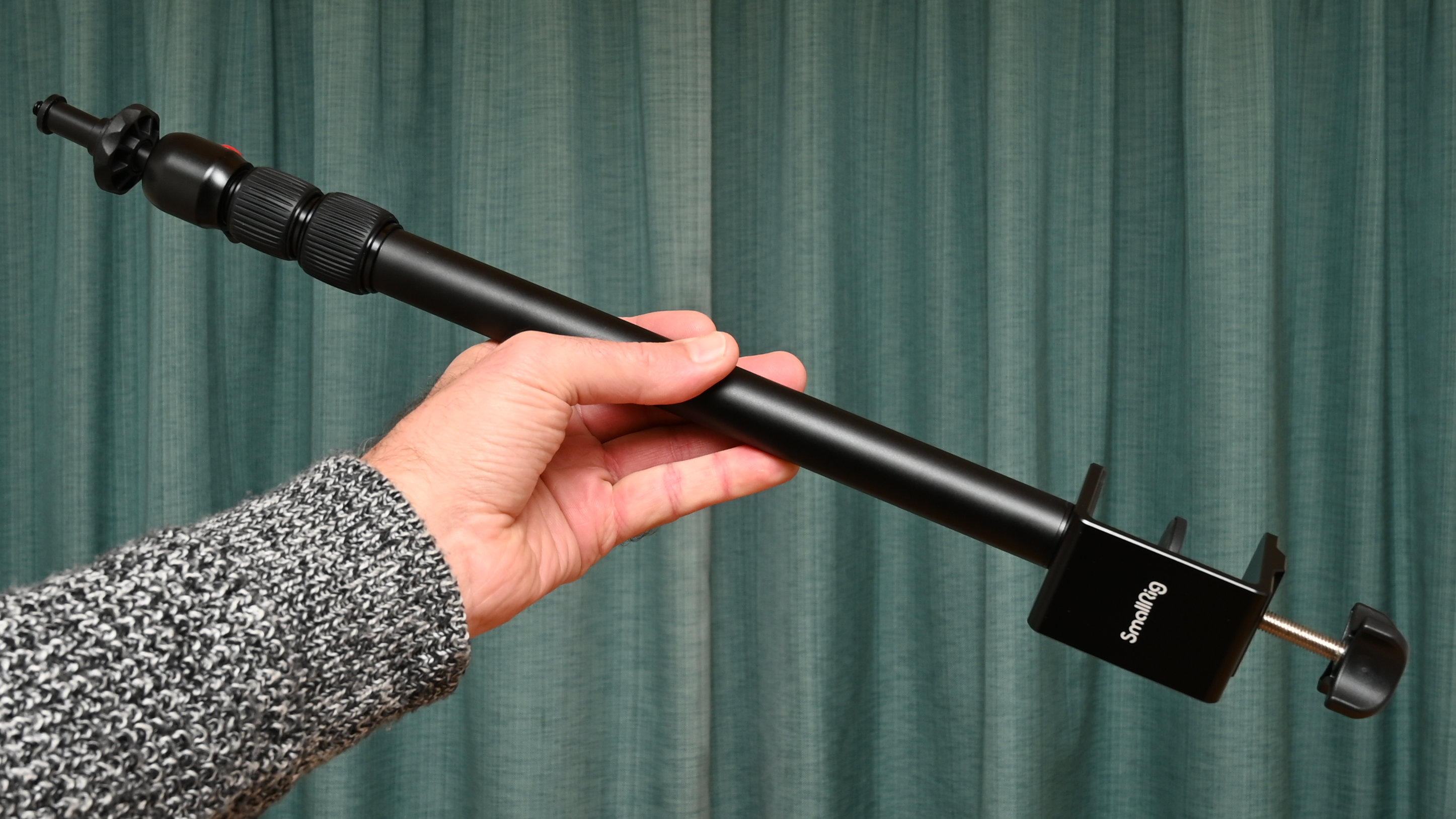
Specifications
Reasons to buy
Reasons to avoid
✅ You just want a vertical pole that attaches to a desk or table, and you don’t need auxiliary arms.
✅ You like to keep things simple with good quality kit that serves a basic purpose and is quick and easy to use.
❌ You want to support an LED panel or other accessory as well as a camera. This kit has no auxiliary arms.
❌ You’d rather buy a kit that comes complete with a phone mounting bracket, instead of having to buy one separately.
For me, the very best thing about the SmallRig Camera Desk Mount is that it’s so quick and easy to set up and use. Then again, that’s hardly surprising. Compared with many other desk and tabletop mounting systems, it’s a very basic affair comprising just a center pole with a desk clamp at one end and a ball head at the other. There are therefore no auxiliary arms for attaching other accessories.
The desk mounting clamp feels solid and robust. Attached to this is a 3-section extending pole, with diameters of 25 / 22 / 19mm, going from bottom to top. The telescoping action is enabled by twist-action clamps which operate smoothly and efficiently, taking the support from a minimum to maximum height of 39-91cm / 15.4-35.8". The maximum payload rating is good, at 3kg / 6.6lb.
There are a couple of unusual things about this desktop mount. First, it’s supplied with a 5/8” mounting adapter to accommodate the fixing socket of a standard flash head or constant lamp. Secondly, it comes with a carrying bag which certainly isn’t usually supplied. It’s easy to carry around too, with an overall weight of just 440g / 15.5oz.
Read more: SmallRig Camera Desk Mount review
| Features | It has all the features you need for a desk-mounting vertical pole, but nothing more. | ★★★★☆ |
| Design | The overall design is good but it lacks extra auxiliary arms that would add versatility. | ★★★★☆ |
| Performance | It performs well as a vertical pole but is a bit of a one-trick pony. | ★★★★☆ |
| Value | Spend a little more and you can get a desk mount that’s much more versatile. | ★★★★☆ |
Best articulated
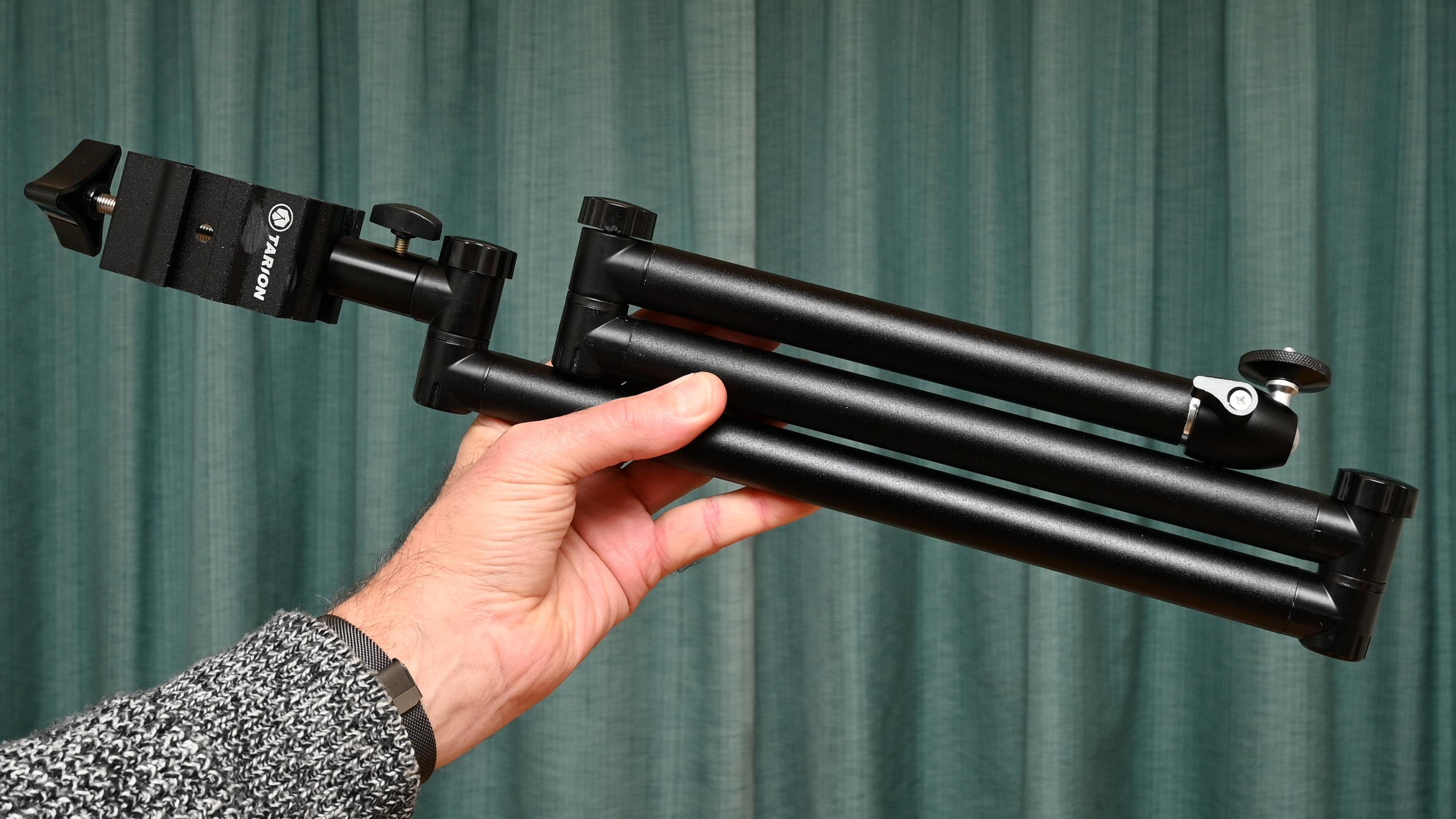
Specifications
Reasons to buy
Reasons to avoid
✅ You want the versatility of being able to position your camera at pretty much any angle and orientation.
✅ You need a camera desk mount that enables you to shoot directly downwards, photographing objects laid on a table.
❌ You’d prefer the relatively quick and easy setup of a conventional camera desk mount with a telescopic center pole.
❌ You need a desk mount with an auxiliary arm or two, for mounting an LED light panel or other accessory.
I like that the Tarion offers something different to most camera desk mounts and gives a very versatile range of movement. There’s a short stubby tube that screws into the desk clamp, and the rest of the support comprises three tubes, all of which have a diameter of 24mm making them quite sturdy and giving a maximum load rating of 3kg / 6.6lb, plus a mini ball head at the top.
Instead of having a main center tube and auxiliary arms, the three tubes are joined end to end and each has its own locking twist-action clamp. Each clamp features splines to avoid any sagging when in use. The net result is that there’s a good range of height adjustment, equating to 14-100cm / 5.5-39.4". Better still, each clamp enables a full 360 degrees of rotation in the vertical plane, you can use the support as a vertical pole, horizontal boom, or anything in between.
A major bonus is that if if you’re shooting something flat, lying on a tabletop, you can set up the stand in an L-shape or U-shape configuration, so that the camera is pointing vertically downwards. That’s definitely not the case with straightforward desk mount supports that rely only on a vertical center pole, and have no additional auxiliary arms.
Read more: Tarion Camera Desk Mount review
| Features | There’s a lot of versatility built into this desk mount, thanks to a good set of features. | ★★★★☆ |
| Design | Based on three adjustable tubes, the design is pretty crafty but a little fiddly. | ★★★★☆ |
| Performance | It’s not the most solid support out there but rigidity is pretty good, considering the multiple joints. | ★★★★☆ |
| Value | There are quite a few components in this kit, making it good value at the price. | ★★★★☆ |
How to choose
Clamp height
It’s a good idea to measure the thickness of the desk or tabletop to which you want to attach the stand. Most have a tabletop clamp that accommodates a thickness of up to 50mm / 2”, or thereabouts, while some have a clamp with a greater height.
Standard pole
If you only want a vertical pole on which to mount a camera, a straightforward desk mount with just a center pole, tabletop clamp and ball head will suffice. If you want to add other accessories, look for a kit that includes auxiliary arms.
Auxiliary arms
A kit that has one auxiliary arm will only usually allow you to add it as a horizontal tube. With two auxiliary arms, you can typically get a much greater range of height adjustment, as well as configuring the arms at different angles. That can be ideal if, for example, you want to mount a camera as well as an LED light or other accessory.
Height adjustment
Most camera desk mounts have a center pole with an extending facility based on one or two inner tube sections, complete with locking clamps. This enables you to set the camera at just the right height for any given situation.
Maximum payload rating
Check out the maximum load rating and that it accommodates the camera kit with which you want to use the stand. Bear in mind that for kits that include a center pole and auxiliary arms, the load rating might be much higher for the center pole than the arms.
Ball head
A mini ball head is generally supplied for the top of the center pole. For versatility, it’s good if kits with auxiliary arms include additional ball heads for each arm.
Phone bracket
If you want to mount a phone instead of a camera on your desk stand, it’s useful if the kit includes a phone bracket in its parts list. If not, it needn’t be a deal-breaker. Phone brackets are quite cheap to buy separately.
How we test
We test camera desk mounts using mirrorless cameras, LED light panels and other accessories. We mount them to a sturdy, heavyweight desk and table and check the speed and ease with which all of the available height and other adjustments can be operated. We also check the rigidity of the stands when used throughout their range of operating heights, and how tightly the clamps hold the various sections in place. We also judge the build quality and finish of each product. Where included, use all supplied accessories, like auxiliary arms, ball heads and phone brackets. You can find out more about how we test and review on Digital Camera World.
Get the Digital Camera World Newsletter
The best camera deals, reviews, product advice, and unmissable photography news, direct to your inbox!
Matthew Richards is a photographer and journalist who has spent years using and reviewing all manner of photo gear. He is Digital Camera World's principal lens reviewer – and has tested more primes and zooms than most people have had hot dinners!
His expertise with equipment doesn’t end there, though. He is also an encyclopedia when it comes to all manner of cameras, camera holsters and bags, flashguns, tripods and heads, printers, papers and inks, and just about anything imaging-related.
In an earlier life he was a broadcast engineer at the BBC, as well as a former editor of PC Guide.
